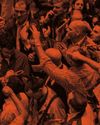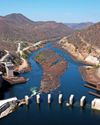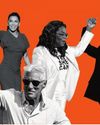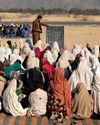
How optimistic that image sounds 35 years on. Last Sunday's historic election results from Thuringia and Saxony paint a picture of a Germany whose eastern and western regions are, if anything, drifting further and further apart.
The far-right, anti-immigration Alternative für Deutschland (AfD) is riding a populist wave. If federal elections were held tomorrow, polls suggest the party could become the second strongest group in the Bundestag. But only in the eastern states can the AfD claim to have a mandate to form the next government, as its Thuringian leader, Björn Höcke, has done after emerging top in a state election, on nearly 33% of the vote.
As long as the remaining parties manage to uphold the cordon sanitaire around the far right, its dreams of seizing power will probably remain merely aspirational. Nonetheless, the AfD's establishment as a regional force raises questions about Germany's political identity and how it contains the rise of such forces in the future.
For years, the assumption in Germany has been that once the eastern states had "caught up" with the rest of the country economically, their political outlook would align. According to such reasoning, the rise of the AfD is cast as a protest vote against continued disparities in income, employment and living standards.
This story is from the {{IssueName}} edition of {{MagazineName}}.
Start your 7-day Magzter GOLD free trial to access thousands of curated premium stories, and 9,000+ magazines and newspapers.
Already a subscriber ? Sign In
This story is from the {{IssueName}} edition of {{MagazineName}}.
Start your 7-day Magzter GOLD free trial to access thousands of curated premium stories, and 9,000+ magazines and newspapers.
Already a subscriber? Sign In

Friendship interrupted
They were best mates. Then one had a baby, while the other struggled to conceive. They share their brutally honest takes on what happens when motherhood affects friendship

KERNELS OF HOPE
During the siege of Leningrad, botanists in charge of an irreplaceable seed collection, the first of its kind, had to protect it from fire, rodents-and hunger

A new horizon' The inverse link between cancer and dementia
Scientists have long been aware of a curious connection between these common and feared diseases. At last, a clearer picture is emerging

Across the universe
Samantha Harvey won the Booker prize with a novel set in space. Yet, she says, Orbital is actually 'a celebration of Earth's beauty with a pang of loss'

Frank Auerbach 1931 -2024
Saved from the Holocaust, this artist captured the devastation of postwar Britain as ifits wounds were his own but he ultimately found salvation in painting

Seven lessons I've learned after 28 years as economics editor
Margaret Thatcher was Britain's prime minister and Neil Kinnock was leader of the Labour party.

Droughtstricken dam leaves economies powerless
A ll is not well with the waters of Lake Kariba, the world's human-made lake largest A punishing drought has drained the huge reservoir close to record lows, raising the prospect that the Kariba Dam, which powers the economies of Zambia and Zimbabwe, may have to shut down for the first time in its 65-year history.

Let this be the end of these excruciating celebrity endorsements
I wish celebrities would learn the art of the French exit. But they can't, which is why Eva Longoria has announced she no longer lives in America. \"I get to escape and go somewhere,\" she explained.

Alive, but unable to thrive under absolute patriarchy
Since the Taliban returned to power, women and girls have tried defiance, but despair at their harshly restricted lives

‘It's tragic’ Reflection in the wake of Amsterdam violence
Carrying signs scrawled with messages urging unity, they laid white roses at the statue of Anne Frank, steps away from the home where her family had hidden from Nazi persecution.